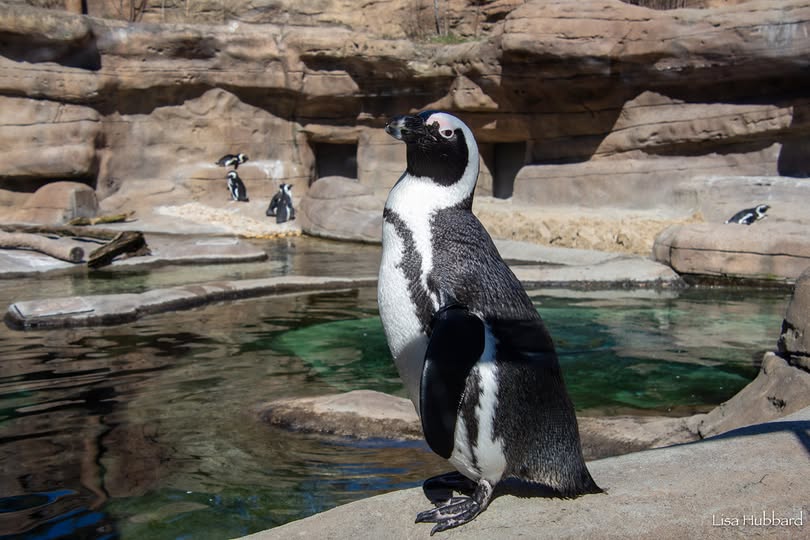- African penguins’ journey from thriving populations to critical endangerment due to ecological and human influences.
- The recent legal victory by conservation groups to protect African penguins’ feeding grounds by enforcing no-fishing zones.
- The crucial role of organizations like SANCCOB in the protection and recovery efforts of African penguins.
- The scientific implications of overfishing on African penguins and their habitat.
- Long-term strategies required for the continued conservation of African penguins.
African penguins were once an abundant species along the coasts of southern Africa. Over time, however, they have seen a drastic decline in population numbers. Today, these charming seabirds are classified as critically endangered. Various ecological and anthropogenic factors have contributed to this predicament, but overfishing stands as one of the most severe threats to their existence. As competition with human fisheries for food escalates, penguins face the dire consequences of habitat degradation. The recent triumph in court to expand no-fishing zones around their breeding sites marks a significant milestone in conservation efforts. The fight for their survival is not over, but progress is being made thanks to dedicated conservation partners like SANCCOB.
The past century has witnessed the African penguin population plummet. At the dawn of the 20th century, the population was estimated at around 1.5 million individuals, but these numbers have now diminished to only about 2% of this historic size. Habitat destruction, oil spills, and climate change have compounded the issue, but overfishing of small fish such as sardines and anchovies plays a pivotal role in their decline. These fish constitute the primary diet for African penguins. As human fisheries deplete these resources, penguins face nutritional stress, reducing their breeding success and chick survival. It becomes apparent that the trajectory of this species hinges largely on sustainable fishing practices.
In the face of these challenges, conservationists have been tirelessly advocating for strategies that would alleviate the pressure on African penguins. Conservation organizations, together with scientific communities, have carried out extensive research and analyses to identify key areas essential for penguin feeding and breeding. These efforts culminated in a legal battle spearheaded by SANCCOB and other allies. The goal was to secure crucial habitats from overfishing by enforcing no-fishing zones around major African penguin colonies. The recent ruling in favor of these protective measures marks a hopeful turning point, as it prioritizes the ecological needs of penguins over the short-term interests of human fisheries.
SANCCOB’s involvement in this battle is a testament to their commitment to seabird conservation. For over five decades, SANCCOB has been central to saving seabirds, focusing not only on direct rescue and rehabilitation but also on broader ecological preservation. Their strategies encompass scientific research, policy advocacy, and public education, aiming to foster understanding and support for conservation efforts. With their help, injured and oiled birds receive care, and those saved from oil spills and other catastrophic events are rehabilitated and released back into the wild. SANCCOB’s collaborative approach with multiple stakeholders has been instrumental in highlighting the plight of African penguins and pushing forward necessary legislative changes.
The scientific ramifications of overfishing on African penguins extend beyond immediate scarcity of food. Ecosystem imbalances created by the removal of vast quantities of small forage fish can have cascading effects. Such imbalances may disrupt the intricate food web that marine life depends on, affecting not just penguins but other marine birds, fish, and mammals. Studies have shown that reduced availability of sardines and anchovies correlates with declining penguin survival rates. This situation is exacerbated by climate variability, which can alter sea temperatures and currents, further impacting fish distribution and abundance. By legally protecting no-fishing areas, a more stable environment can be created, allowing fish populations and, consequently, penguin populations, to recover.
Looking to the future, African penguin conservation requires robust, long-term strategies. Beyond legal protections, there must be comprehensive marine spatial planning that considers the ecological requirements of seabirds alongside human economic activities. This includes ongoing monitoring and research to adaptively manage the protected areas and ensure they remain effective. Educational initiatives to raise awareness about sustainable fishing practices and the importance of biodiversity are vital for fostering a culture that values conservation. International cooperation and policies that address climate change impacts are also essential components of a successful conservation strategy.
African penguins face numerous challenges, but success stories, like the recent legal victory, bring hope. Collaborative efforts between conservation organizations, governments, and communities can pave the way for a viable future for these iconic birds. Continued commitment to sustainable practices and protective legislation will be crucial in pulling the African penguin back from the brink of extinction. This victory is a step in the right direction, promising a more secure and prosperous habitat for African penguins along the southern coasts of Africa.
*****
Source Description
Victory for African penguins!! Once thriving along the coasts of southern Africa, African penguins are now critically endangered largely due to overfishing in their native habitat.
Our conservation partners at SANCCOB saves seabirds have been in a year-long legal battle to increase the no-fishing zones around the largest African penguin breeding sites. Yesterday the court ruled in their favor!
Thank you to our conservation partners for helping bring the species back from the brink of extinction!!
@sanccob


